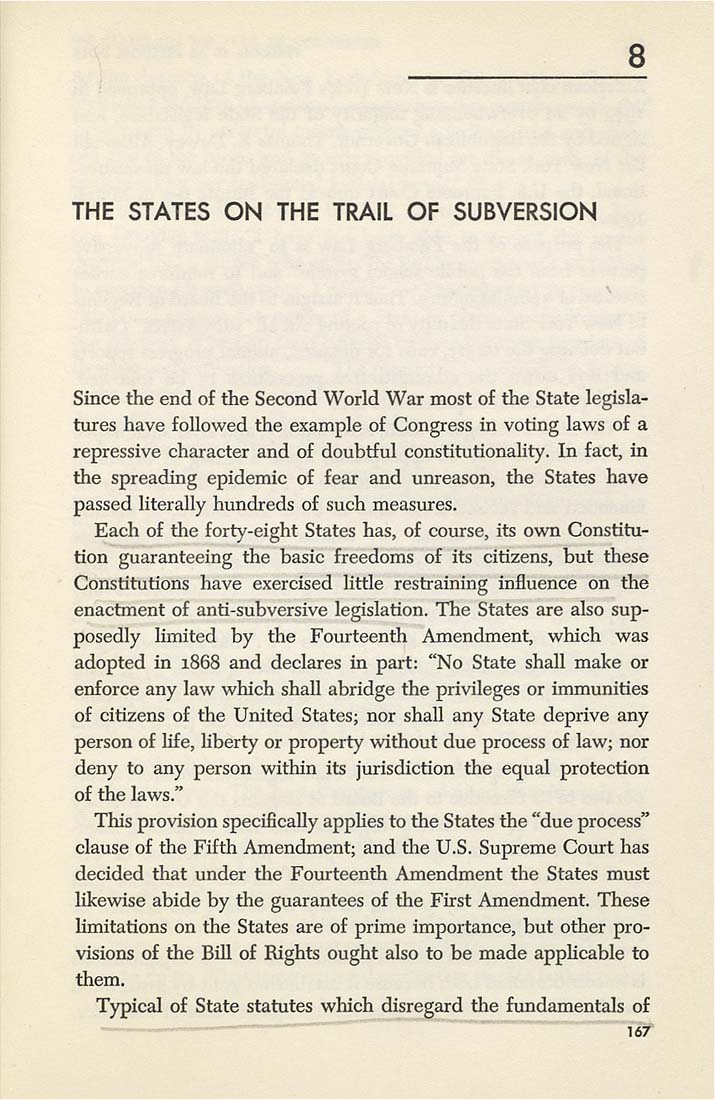THE STATES ON THE TRAIL OF SUBVERSION
Since the end of the Second World War most of the State legisla¬
tures have followed the example of Congress in voting laws of a
repressive character and of doubtful constitutionality. In fact, in
the spreading epidemic of fear and unreason, the States have
passed literally hundreds of such measures.
Each of the forty-eight States has, of course, its own Constitu¬
tion guaranteeing the basic freedoms of its citizens, but these
Constitutions have exercised little restiaining influence on the
enactment of anti-subversive legislation. The States are also sup¬
posedly hmited by the Fourteenth Amendment, which was
adopted in 1868 and declares in part: "No State shall make or
enforce any law which shall abridge the privileges or immunities
of citizens of the United States; nor shall any State deprive any
person of Hfe, liberty or property without due process of law; nor
deny to any person within its jurisdiction the equal protection
of the laws."
This provision specfficaUy applies to the States the "due process"
clause of the Fifth Amendment; and the U.S. Supreme Court has
decided that under the Fourteenth Amendment the States must
likewise abide by the guarantees of the Fhst Amendment. These
limitations on the States are of prime importance, but other pro¬
visions of the Bfll of Rights ought also to be made appHcable to
them.
Typical of State statutes which disregard the fundamentals of
|








